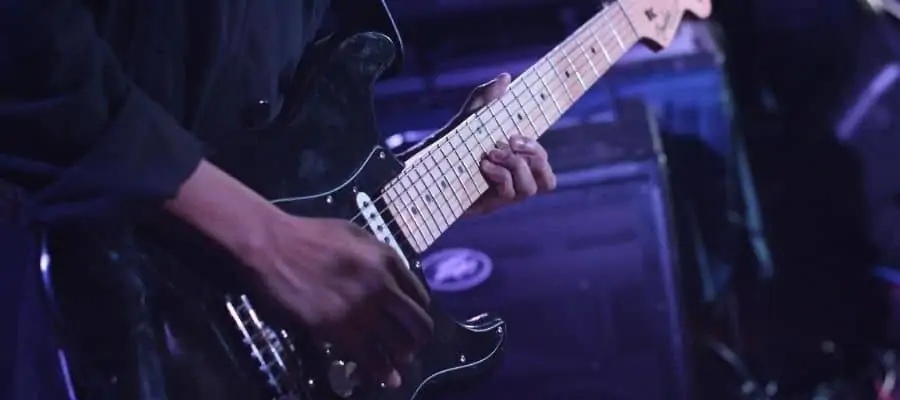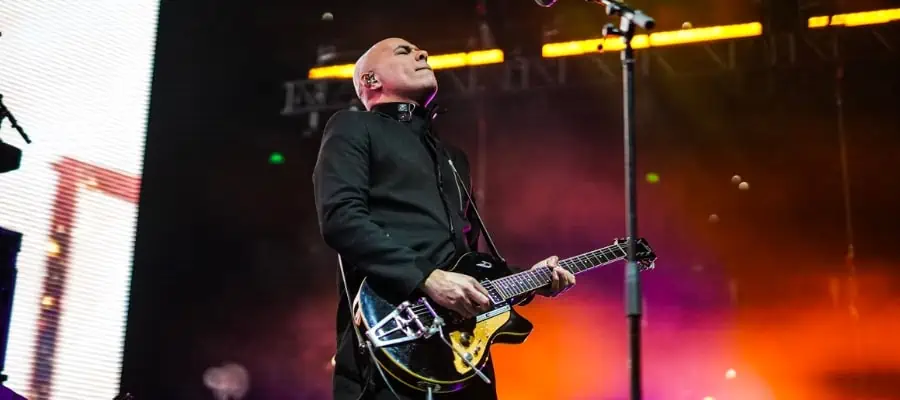Many aspiring guitarists take on the instrument in hopes that one day they’ll be able to solo, just like some of the all-time greats. However, knowing that these artists have had to spend their entire lives dedicated to their craft in order to achieve that level of expertise, some might be left wondering – how long does it take to learn how to solo?
Learning how to solo on guitar can take anywhere between six months and a couple of years. This timeframe can vary depending on your skill set, dedication, and what you consider a “proper solo.” While you can nail a simple melody at the half-year mark, more impressive solos require years.
That’s why it’s impossible to give a definitive answer on how long it’ll take for you to learn how to solo. With that said, below, I’ll give you all the information you need to make an educated estimate on your own. In the following sections, I’ll explore some of the main factors determining how long it might take for you to learn to solo while also giving you some tried-and-true tips on how to speed the process along, so make sure to read on.
Factors That Determine How Long It Takes for You To Learn to Solo on Guitar

If you were to give two people the same resources and end goal of learning how to solo, chances are they still wouldn’t be able to achieve it at the same time. That’s because several factors can affect the time it’ll take for each guitarist to learn how to perfect such a coveted skill.
Here are some of them:
Prior Musical Experience
Having any type of prior musical experience can help speed the process along more than you’d think. Whether you already know how to play another instrument or are familiar with the concepts of guitar playing, you’ll have a better shot at learning how to solo faster than your peers.
Some musical concepts are hard to grasp for those who are just getting started, and already having a solid foundation on which you can base your learning gives you a leg up.
Natural Ability
Do you know how some people seem to be born guitar players? Unfortunately, that innate ability can’t be replicated through artificial means. For example, even if you get two complete beginners to start practicing at the same time following the same program, chances are one of them will catch on quicker than the other.
So, the time it’ll take to learn how to solo will always be unpredictable and dependent on factors you have no control over. Don’t worry, though. Even if you’re not blessed with outstanding musical talent, you’ll still be able to get where you want in terms of your guitar-playing skills, even if it might take extra time and effort.
Practice Schedule
Your practice sessions’ frequency and difficulty level is probably the most important factor on this list. You can’t expect to learn how to solo in a matter of months if you only practice once a week for half an hour.
Learning to play the guitar requires a lot of patience, time, and effort, so if you rush to advance your skills, you must show unparalleled dedication.
Learning Materials
Not all learning plans are created the same, so accessing the right resources can make a world of difference in how fast you’ll be able to learn how to solo.
That’s why aspiring guitarists who enlist the help of a private tutor have a better chance of perfecting the skill quicker, seeing as they receive personalized guidance and have access to meticulously curated learning materials.
Your Perspective
Your perspective can also make all the difference in how fast you learn to solo. That’s because what one guitarist might consider a proper solo another might see as a simple melody.
For example, many guitarists will be able to hold a melody after six months of regular practice. However, not all consider that a “proper” solo is a highly subjective concept.
In other words, it takes far less time to learn how to play a Slash solo than it takes to play a solo exactly like Slash. So, when determining the timeframe for learning this new skill, try to visualize your end goal.
Techniques You’ve Already Mastered
There are several simpler techniques a guitarist needs to master before becoming an efficient soloist. These include:
- Music theory
- Scales and modes
- Arpeggios
- Ear training
How To Learn to Solo Faster

Now that you have a general idea of how long it’ll take you to learn how to solo, it’s time to explore some of my top tips on how to speed the process along.
- Set specific, achievable goals.
- Practice as regularly as possible.
- Start by mastering the basics before moving on to more difficult techniques.
- If possible, enlist the help of a guitar teacher.
- Make it a point to watch experienced guitarists regularly to learn from their techniques.
- Stay patient – progress is never linear.
As long as you follow these tips and stay consistent with your practice sessions, you should be able to learn how to solo in no time. However, I’d advise against being too headstrong about learning how to solo immediately.
Instead, focus on learning more basic techniques first, taking everything one step at a time. I guarantee that as you build up your technical abilities, soloing will come much more naturally to you.
Conclusion
Though it’s difficult to pinpoint a specific time frame on how long it takes for someone to learn how to solo, most guitarists need anywhere from a few months to a few years to nail a decent solo.
However, several factors can affect how long the process may take, some of which are entirely out of your control, so I suggest staying patient and consistent as you become more efficient on the guitar. You can always follow some of the tips outlined above to help speed the process along – just remember that progress is never linear.
If you found this article useful, you may want to save this pin below to your Guitar board.

Recent Posts
When learning new songs have you noticed that some of the chord sequences sound really good? But when you tried to come up with your own chord sequence, or as we call it chord progression, you found...
Some guitarists insist on buying an expensive amplifier with their electric guitar. They assume that this is a must for every type of guitarist out there. However, in some situations, this isn’t...

